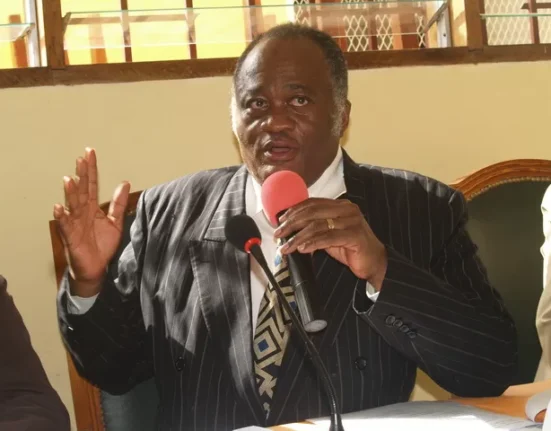Dr. Martin Mungwa an engineer with experience.
Letter to the Editor
Sir/Madam,
Why the High Rate of PhD Unemployment in Cameroon? An Ambazonian Perspective
Cameroon is a country that ironically treats its highest intellectuals as expendable. Every year, it produces scores of PhD holders who end up in limbo—unemployed, underutilised, or completely disillusioned. The reasons are complex but not mysterious. From the vantage point of an Ambazonian scholar, the problem is not simply about jobs; it is about a system that fears competence and punishes merit.
Permit me to share a personal experience. As the former Head of the Department of Civil Engineering at the National Advanced School of Engineering (Polytechnique) in Yaoundé—and at the time, one of Africa’s leading experts in wood engineering—I once applied to head the École de Bois in Nkolbisson. I was more than qualified. But a colleague pulled me aside and cynically remarked, “There is no wood in Bamenda.”
That one sentence—so casually delivered—captured the essence of Cameroon’s intellectual rot. My ethnic origin, not my qualifications, determined my chances.
Less than a year later, I was recruited to lead a wood research institute in Corvallis, Oregon, USA—not because I hailed from a privileged tribe or had a godfather in government, but simply because I could do the job. They never cared whether I lived in a tree or a hole. They only wanted one thing: competence.
And that is the difference. In Cameroon, political ethnicity, especially the dominance of the Bulu-Beti oligarchy, decides who gets hired, not ability. In Ambazonia, we must do better.
From an Ambazonian Perspective, Here Are the Core Issues:
Irrelevant Research Agendas:
PhD programs are largely theoretical, rarely tied to pressing national development goals or industrial needs.
No Industry Absorption Strategy:
The private sector is disconnected from academia. There are no policies that facilitate research-commercialisation, internships, or innovation clusters.
No Succession Planning or Career Pipeline:
There’s no transparent roadmap guiding how PhDs fit into the future of the nation—no mentorship, no rotation, no deliberate grooming.
Ethnic Discrimination:
Appointments are frequently based on tribal affiliation, not qualification. Non-Beti/Bulu scholars are often frozen out of leadership roles or hiring panels.
Poor Pedagogical Training:
Even where opportunities exist, many PhDs are thrown into classrooms without formal instruction in teaching methods, creating a cycle of ineffective instruction and poor student outcomes.
The Ambazonian Alternative
In a liberated and forward-thinking Ambazonia, this toxic cycle must be broken. Government policy will deliberately align education with industry, providing rotation, internships, and professional mentorship across sectors. Merit will be the only currency of employment. The private sector will be engaged in co-designing policies and succession strategies, ensuring education leads to opportunity, not stagnation.
Licensing bodies will emphasise not just technical skill, but ethical competence and national service. Above all, we must foster a culture where no child is denied opportunity because of their region, name, or accent.
I know the pain of being discarded by a system that would rather protect privilege than empower talent. I also know the joy of being recognised in a land that values performance over pedigree. That is the future Ambazonia must build—for the sake of every young scholar who still believes that excellence should count for something.
Yours sincerely,
Dr. Martin Mungwa, PhD, MBA, PMP
US Licensed Professional Engineer, (PE)
Fellow, American Society of Civil Engineers (F.ASCE)





















Leave feedback about this